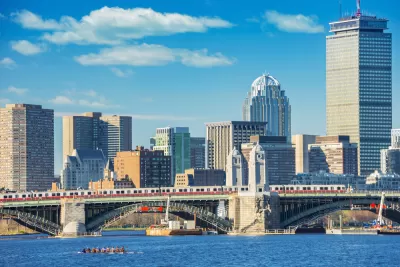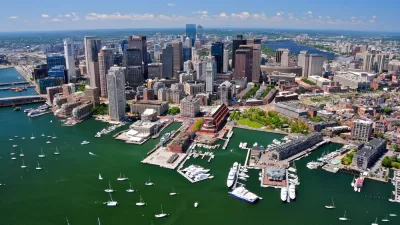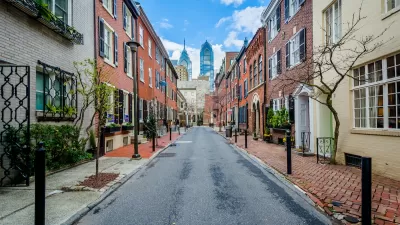Stopping short of a mandate, the city plans to request that developers provide information about diversity and inclusion on their teams.

As reported by Yvonne Abraham in a paywalled article in the Boston Globe, the city of Boston plans to ask developers to provide diversity disclosures, which the city already requires for projects on publicly owned properties. The policy would encourage developers to consider equity and inclusion in their project teams.
While the city may not be able to mandate such disclosures for private land, “City housing chief Sheila Dillon said collecting data on developers’ diversity plans will be an invaluable tool to show both what the city is doing right and where it can improve.”
According to Abraham, “The disclosure would ask developers to ‘include economic participation, employment, and management roles by people of color, women,’ and certified minority- and women-owned business enterprises.”
The BPDA plans to use data collected over the next six to nine months to understand disparities and eventually incorporate the policy into the city’s zoning code. “Segun Idowu, the city’s chief of economic opportunity and inclusion, said a policy change to BPDA’s Article 80 process — which is how most large real estate projects are reviewed by the city — would make sure that many who have been excluded from the real estate development process are able to participate in projects.”
FULL STORY: In a first, Boston to ask developers to disclose diversity fo project teams and investors

Planetizen Federal Action Tracker
A weekly monitor of how Trump’s orders and actions are impacting planners and planning in America.

Congressman Proposes Bill to Rename DC Metro “Trump Train”
The Make Autorail Great Again Act would withhold federal funding to the system until the Washington Metropolitan Area Transit Authority (WMATA), rebrands as the Washington Metropolitan Authority for Greater Access (WMAGA).

The Simple Legislative Tool Transforming Vacant Downtowns
In California, Michigan and Georgia, an easy win is bringing dollars — and delight — back to city centers.

DC Backpedals on Bike Lane Protection, Swaps Barriers for Paint
Citing aesthetic concerns, the city is removing the concrete barriers and flexposts that once separated Arizona Avenue cyclists from motor vehicles.

In These Cities, Most New Housing is Under 441 Square Feet
With loosened restrictions on “micro-housing,” tiny units now make up as much as 66% of newly constructed housing.

Albuquerque’s Microtransit: A Planner’s Answer to Food Access Gaps
New microtransit vans in Albuquerque aim to close food access gaps by linking low-income areas to grocery stores, cutting travel times by 30 percent and offering planners a scalable model for equity-focused transit.
Urban Design for Planners 1: Software Tools
This six-course series explores essential urban design concepts using open source software and equips planners with the tools they need to participate fully in the urban design process.
Planning for Universal Design
Learn the tools for implementing Universal Design in planning regulations.
Smith Gee Studio
City of Charlotte
City of Camden Redevelopment Agency
City of Astoria
Transportation Research & Education Center (TREC) at Portland State University
US High Speed Rail Association
City of Camden Redevelopment Agency
Municipality of Princeton (NJ)





























